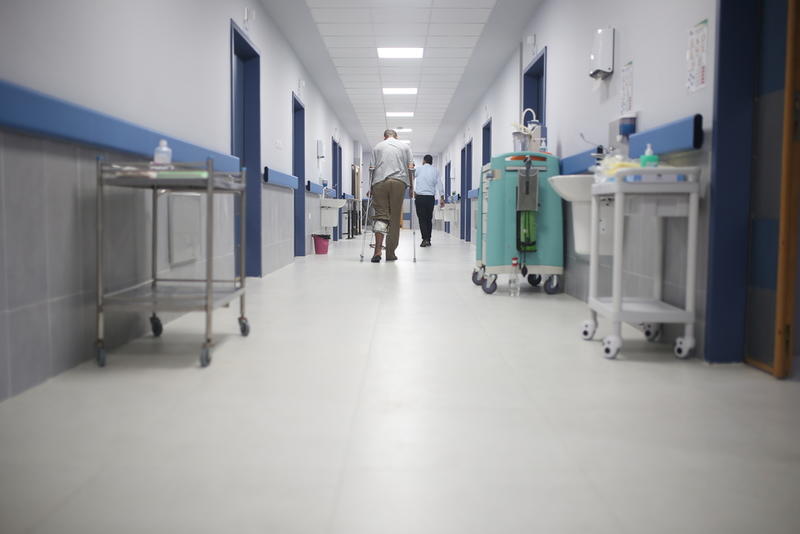Gaza/Jerusalem – Médecins Sans Frontières/Doctors Without Borders (MSF) opened a new surgical unit in Gaza to provide advanced medical treatment to patients injured during the Great March of Return. Based in Nasser Hospital in Khan Yunis, with two dedicated operating theatres and 23 beds, the unit will focus on surgical and microbiological treatment of bone infections resulting from the devastating wounds inflicted by the Israeli army between March 2018 and December 2019, when 213 people were killed and more than 8,800 were injured by live rounds during the protests.
“The medical needs for these patients are still huge” says Christophe Garnier, MSF Project Coordinator. “Many require complex procedures and their treatment generally takes a very long time: months, possibly years. Some have lost several centimetres of bone and big chunks of flesh, they have gone through multiple surgical operations but are still treated with metal fixators and live in constant pain.”
The injuries sustained are so deep and destructive that patients are at risk of developing deep bone infection (osteomyelitis), which is extremely difficult to treat in a healthcare system that has been crippled by 13 years of Israeli blockade and Palestinian political in-fighting. “The type of service we are providing is quite specific and resource intensive and only available in MSF facilities in Gaza at the moment” says Garnier. “We hope to be able to make a difference for these patients. Their physical condition can lead to social isolation, chronic pain, the loss of the ability to work and strained relationships with family members. The impact of these injuries has been heavy on Gaza.”

The opening of a new surgical unit at Nasser Hospital, in collaboration with the Ministry of Health, is only the latest step in MSF’s response to the needs arising from the border fence protests and the violent response they were met with. We tripled our medical capacity during the emergency phase in 2018 and have since worked continuously to further develop our activities as the challenges mounted even beyond the duration of the protests themselves. More than 4,800 gunshot-wounded patients have been treated in MSF’s health facilities; in 2019 alone MSF performed almost 2,000 surgical interventions.
MSF activities have been developed over the past year to take into account a patient’s overall well-being and ability to cope with the stress and anxiety. “We organize individual sessions of psychoeducation, relaxation techniques or mindfulness exercises to help them accept their condition” explains Amira Karim, an MSF counsellor in Gaza. “Above all, we try to incite positive socialization and to boost family bonding to prevent self-isolation”.
MSF opened its first project in Gaza in 2000 and currently runs three surgical units and four post-operative clinics to treat patients with trauma and burns. In 2018, MSF scaled-up its medical capacity to care for the thousands of people shot by the Israeli army during Great March of Return protests. MSF teams provide plastic and orthopaedic surgery to close large wounds caused by live rounds and to repair the loss of and damage to the bone.


